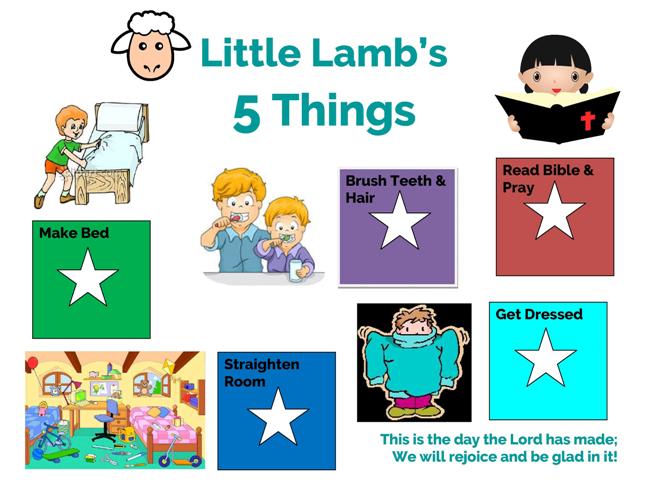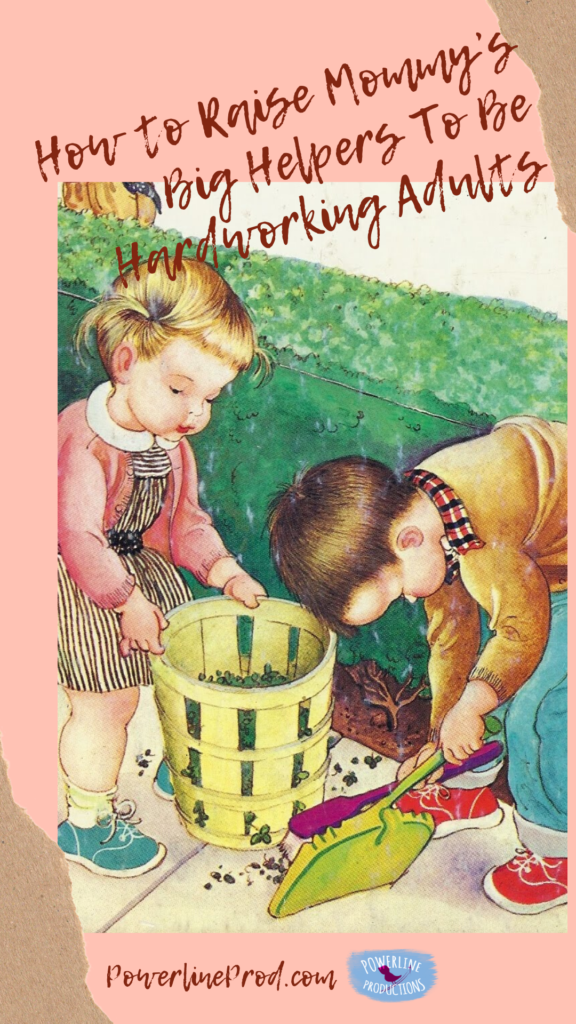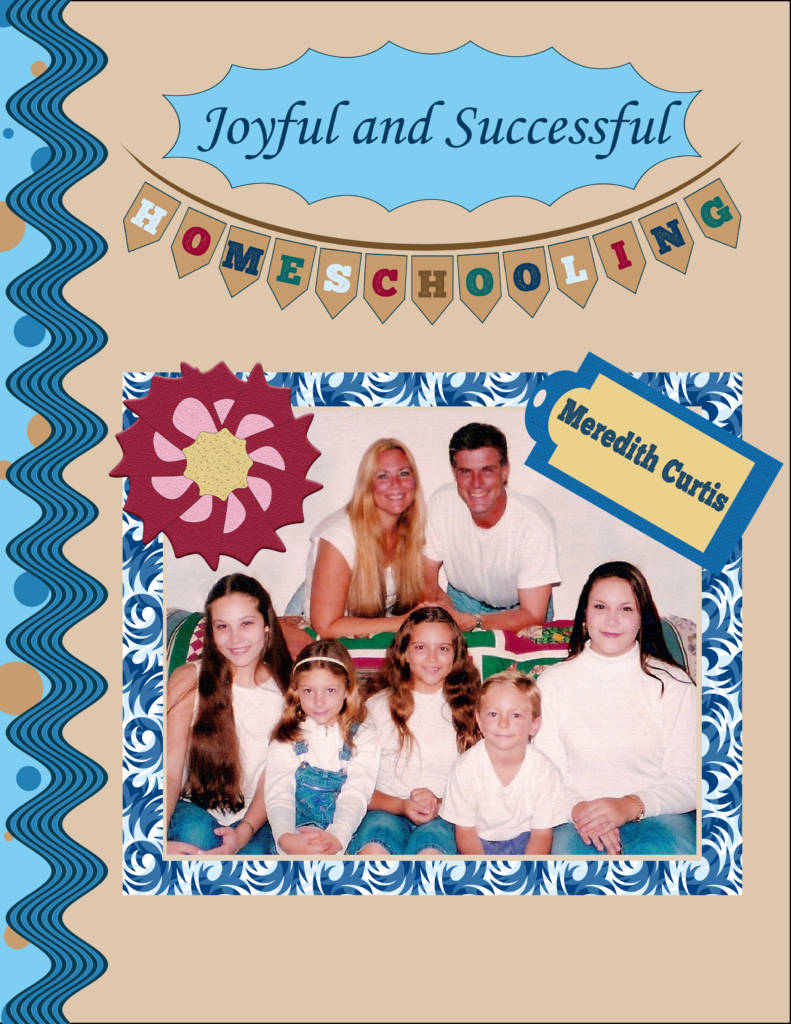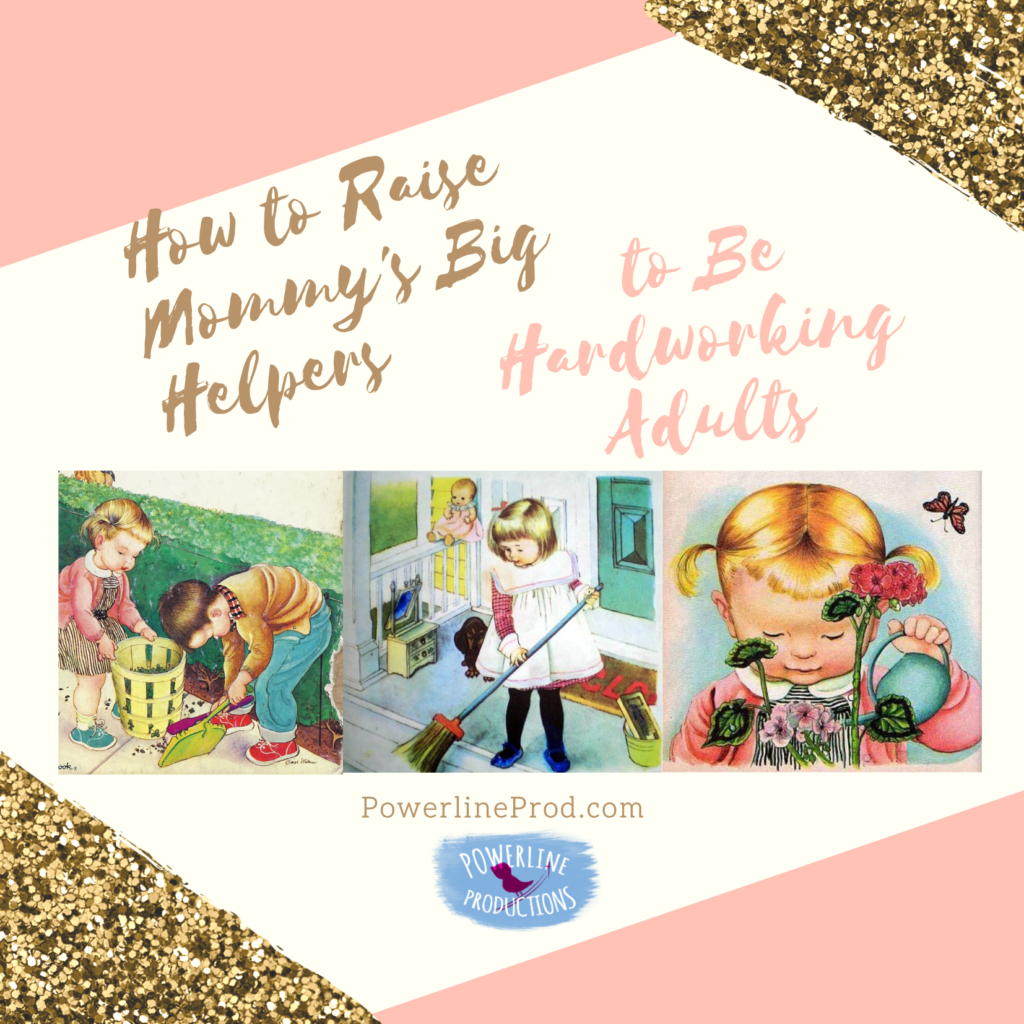“You are Mommy’s big helper,” I hear my oldest daughter say to her little boy.
I smile. That’s what I used to say to her so many years ago.
Toddlers want to help you wash the dishes, prepare food, sweep, put away clothes, and tidy up. However, they often leave behind greater messes than they help clean.
Our Window of Opportunity
Attention Moms! This is our window. If we let our children help when they are little lambs and praise their efforts, we are on track to having big helpers one day.
To cultivate the heart to serve, create an atmosphere of love and acceptance. Don’t require perfection.
Five Things
Our children do their “Five Things” each morning before breakfast. They start when they are toddlers and continue on, hopefully, for the rest of their lives. You can read more here.

Making the bed and straightening up the bedroom each morning is a wonderful lifetime habit for anyone.
I always helped my children make their bed and straighten their room each morning. One day, they would say, “I can do it myself, Mommy.” I let them do it themselves. Certainly not the good job I did, but I praised them for their hard work and job well done.
Working Together
We all worked together each afternoon to tidy the house before Daddy got home. We’d pick up all the toys and run the vacuum. It took about 15 minutes because we all worked together.
When the children wanted to help, I let them. We baked together, washed dishes together, and set the table together. When they asked to sweep, I handed them the broom. Later, when they were sleeping, I swept it again.
Praises were sung to Daddy when he arrived home of Mommy’s big helpers. I lavished them with thanks for all they did to help. It made them feel so confident and needed.

From Helping to Chores
By the time they were four or five, depending on the child, they had their own chores such as setting the table, unloading the silverware from the dishwasher, and clearing the breakfast bowls.
These chores were daily and were rewarded with lots of praise.
As the children grew older, more chores were added. When I gave them a new job, I showed them how to do it and did it with them for several weeks.
By the age of ten, my children had a wide variety of chores: washing dishes, loading the dishwasher, unloading the dishwasher, sweeping the kitchen, taking out the trash, taking trash cans to the curb, dusting, vacuuming, mopping, weeding the garden, and cleaning the bathroom. This greatly lightened my load. However, I always snuck into the bathrooms once a week and wiped down the surfaces with a bleach wipe.

Positive Environment for Chores
I did not bully or threaten my children. We had chore time each day and since everyone else was working too, it was seldom a struggle.
When they didn’t want to do chores, I reminded them twice without raising my voice. After that, I just added an additional chore as a consequence or disciplined them.
I always thanked my children when they did their chores. “Thank you so much for cleaning the bathroom, Jenny Rose. It looks great!”
I didn’t pay my children for their chores, but did give them opportunities to earn money by washing the car or scrubbing baseboards. I paid them generously.
Chores are a big part of training our children to be responsible,
virtuous adults one day.
After all, homeschooling is about imparting truth, teaching
our children how to learn, and preparing our children for life.
Resource
I talk about managing your home and teaching children to do chores in my book Joyful and Successful Homeschooling, along with setting up your home to homeschool, how to teach, how children learn, homeschool philosophies, scheduling, choosing curriculum, how to manage your home, family ministry, and practical tips on how to teach every subject.

You can purchase Joyful and Successful Homeschooling in print at Amazon and the E-book at PayHip, TeachersPayTeachers, and right here on this site. Learn more about Joyful and Successful Homeschooling here.
God bless you on your homeschooling journey.
Warmly,
Meredith Curtis

